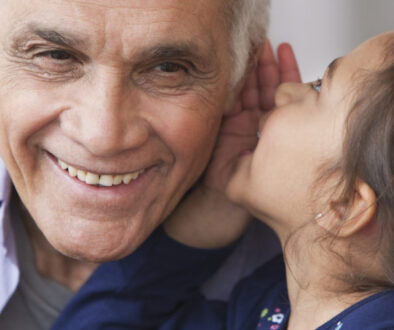Is self-esteem as important as we think?

Self-esteem has been regarded as an important marker of psychological wellbeing. However, Dr Kristin Neff and a number of other researchers suggest that self-compassion is more important for our overall success and wellbeing.
Today, I will be discussing the difference between the two, and the reasons why self-compassion may be more helpful to your psychological wellbeing than self-esteem.
What is Self-Esteem?
Self-esteem is your overall emotional evaluation of what you feel you are worth. It reflects how positively or negatively you view yourself. In simpler terms, it’s how much you like and accept yourself.
Your self-esteem can increase and decrease depending on the circumstances and the environment you’re in, so it’s not an absolute construct like IQ.
Having low self-esteem – or not being in your esteem – is problematic, as it can lead to feelings of inadequacy and not feeling good enough.
This then affects the health of your relationships and your ability to fulfil your potential in a rewarding and satisfying way. At its worst, low self-esteem can be experienced as self-loathing, depression and hopelessness.
Our level of self-esteem is often based on our comparison to others. It’s for this reason that high self-esteem can also be problematic. If people with high self-esteem only feel their sense of worth through comparison to others, their self-esteem will always be dependent on their perceived performance compared to others.
In modern Western culture, self-esteem is commonly linked to how different or special you feel. There’s often pressure to be different, to stand out, and to be regarded as talented or capable. The pursuit of this type of ‘high self-esteem’ leads to separation.
You’re also more likely to try to raise your self-esteem by negative behaviours. For example, putting others down in order to feel better, blaming and pointing the finger, and trying to hide your faults and shortcomings. This can lead to defensive behaviour, angry or competitive behaviour and fundamentally, a lack of authenticity.
You are truly in your esteem when you empower others and value yourself and others equally.
What is Self-Compassion?
Unlike self-esteem, self-compassion does not rely on your self-evaluation. Self-compassion is the ability to be understanding of your shortcomings, without the need to compare yourself to others.
When confronted with an obstacle that they can’t overcome, self-compassionate individuals don’t ignore their pain and berate themselves for not doing better. Instead, they find ways to comfort themselves and accept that they can’t achieve every goal they set out to achieve.
Self-compassionate people understand that being human means that they’re not perfect, and never will be. Therefore, they refrain from being overly critical or harsh on themselves.

Some may think that this kind of mentality is self-indulgent or a cop-out, but it isn’t!
Self-compassion focuses on acknowledging suffering so that you can alleviate it and carry on. You appreciate that you’re entitled to set aside time to allow your heart and ego to heal.
What’s more, being self-compassionate means you acknowledge that other people also have problems and you cut them some slack too.
By practicing self-compassion, you’ll develop more emotional resilience and accurate self-concepts, without the need to judge or compare yourself.
How can I develop self-compassion?
One of Dr Neff’s suggested strategies for developing self-compassion is to imagine a loved one experiencing something similar to the challenge you’re facing.
Think of the things that you would say to your loved one if that situation happened to them.
I’m guessing it’s easier to be more comforting and less critical!
It’s important to try and do the same for yourself whenever you’re suffering.
Another strategy is to memorise a set of phrases that you can combine with a comforting gesture – allowing you to activate a number of your senses.
Try reciting the following phrases while placing your hands over your heart:

- This is a moment of suffering.
- Suffering is a part of life.
- May I learn to accept myself as I am.
- May I forgive myself.
Keep repeating the statements until you feel yourself soften.
Final comments
Developing healthy self-esteem is important, but it’s more important to develop self-compassion.
- Try to be less critical of yourself, and avoid putting yourself down. We can be our own best friend, but sadly, we can also be our own worst enemy.
Please note that your subconscious mind listens to everything you tell it and believes it to be true! - When you’ve just experienced loss or rejection, replace the harsh words of discouragement with words of kindness and comfort. You don’t want to traumatise yourself further or create more pain and suffering. We don’t realise it, but we’re often cruel to ourselves.
- We’re all human and we are all going to experience challenges, hardships, disappointment and loss. It’s simply a fact of being human. Allow it to be a part of life, rather than judging yourself poorly for it.
How much life’s challenges affect us and for how long will partially be determined by how compassionate we are to ourselves.
Let’s all practise loving ourselves more, cutting ourselves some slack, having realistic expectations, and developing compassion for ourselves.
Life will then be more gentle, loving and kind.
To take a quick self-compassion quiz, click here.
Other information you may find helpful:
Self-Compassion with Dr. Kristin Neff
Guided Self-Compassion Meditations
5 Strategies for Self-Compassion





